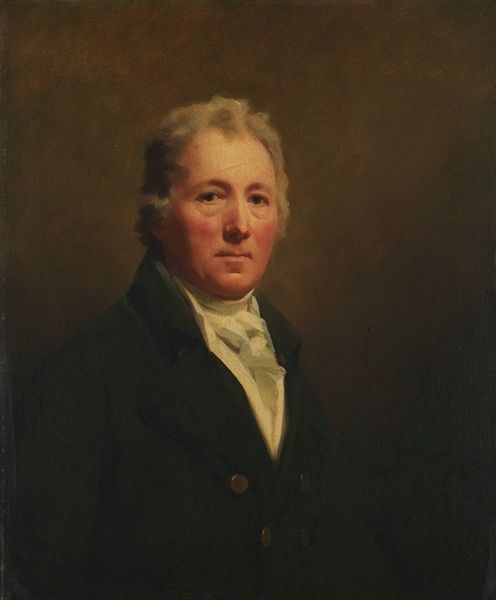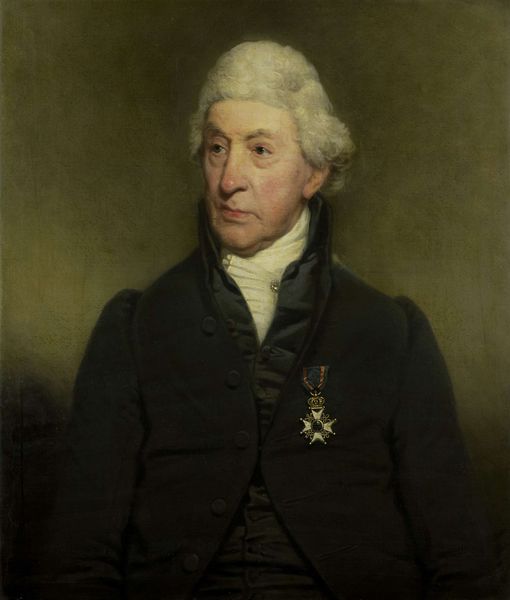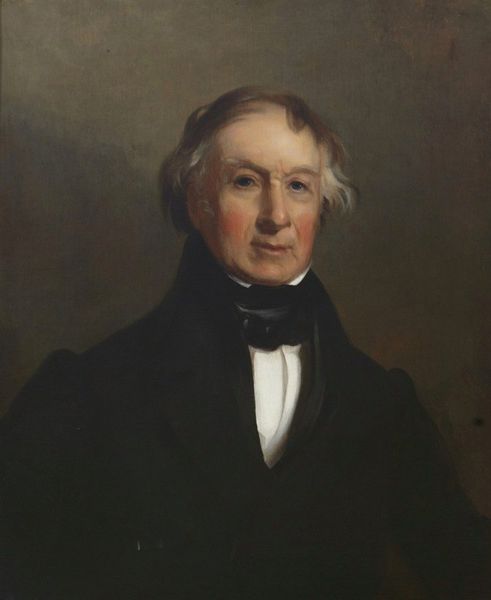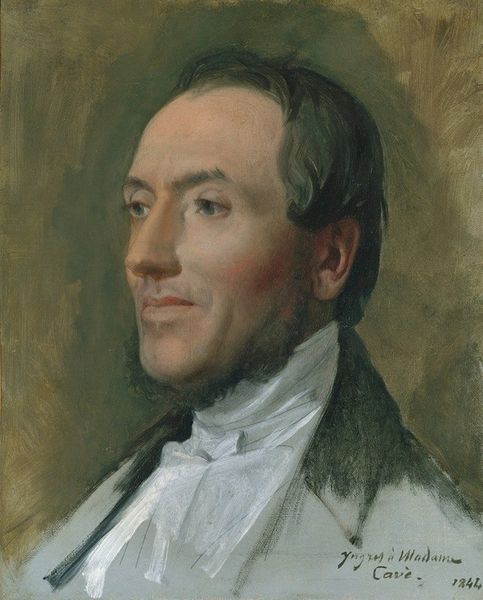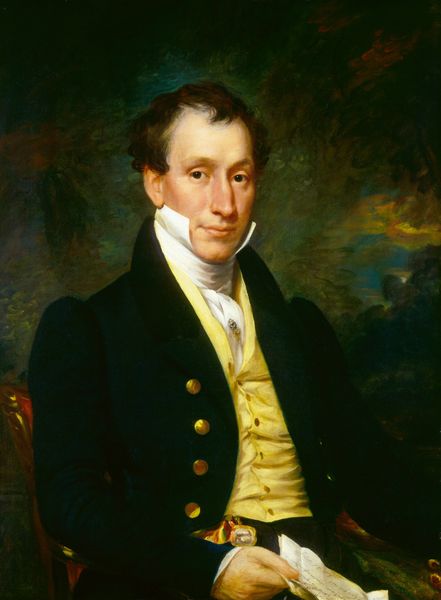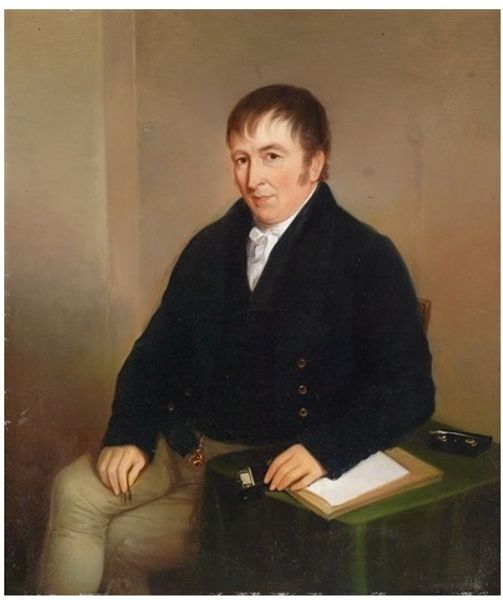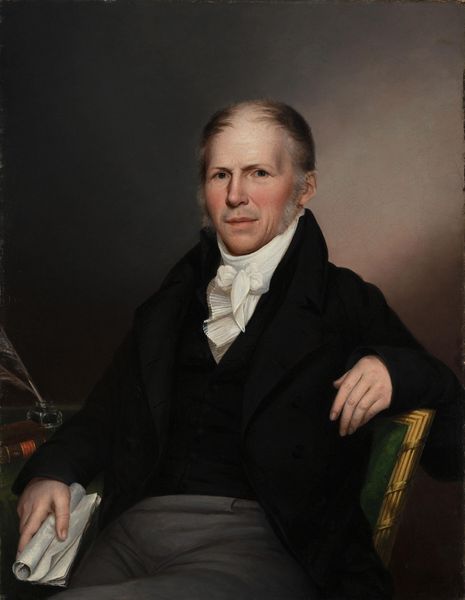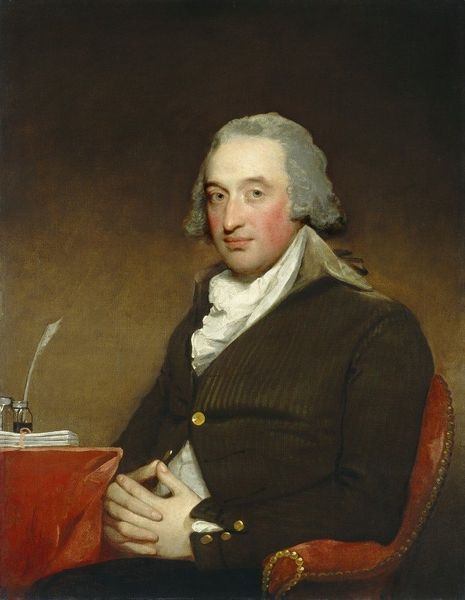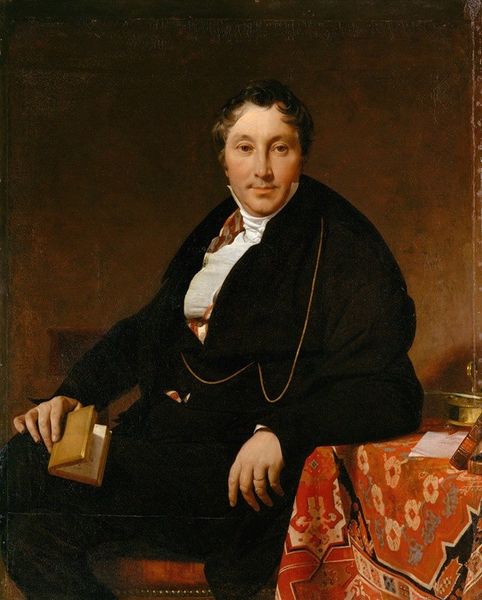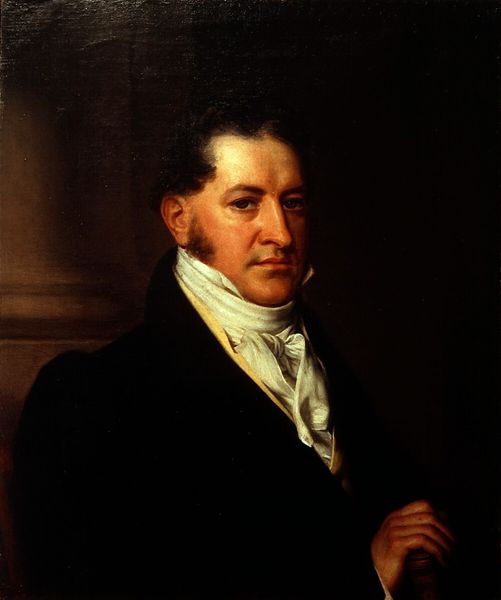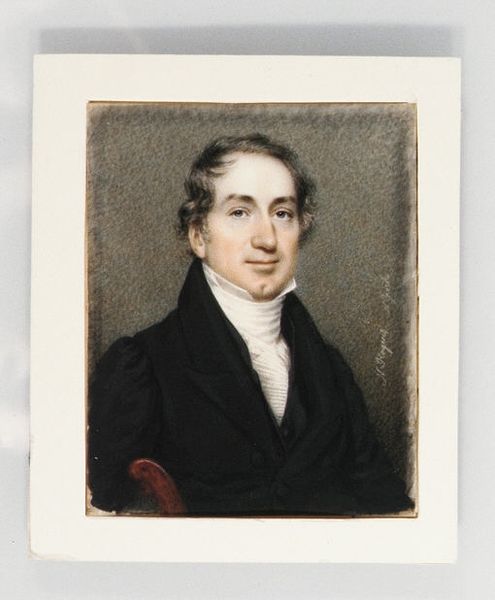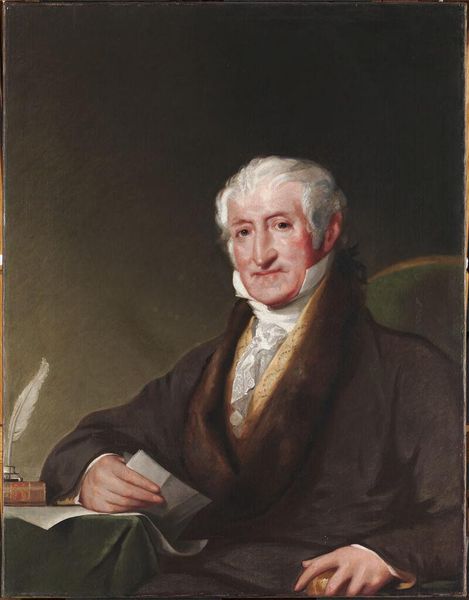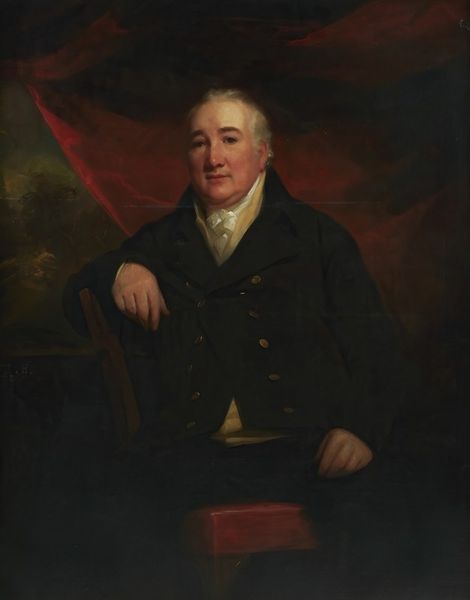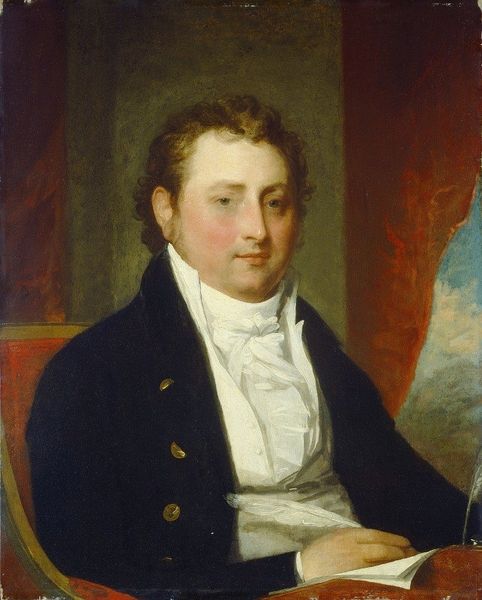
oil-paint
#
portrait
#
portrait
#
oil-paint
#
romanticism
#
history-painting
#
academic-art
Copyright: Public domain
Thomas Sully painted this portrait of William Brown at an unknown date. The painting creates meaning through visual codes and cultural references that would have been clear to its original viewers. In the United States of the 19th century, portraiture was a powerful tool for self-fashioning among the elite. It visually affirmed one’s place in the social hierarchy and conveyed messages about wealth, taste, and character. Note Brown's tailored clothing, his carefully arranged cravat, and his composed expression. These were all markers of a gentleman. Sully, like other portraitists of the era, was thus deeply involved in constructing and reinforcing social identities. Understanding the nuances of this image requires a careful look at the period's economic structures, social hierarchies, and artistic institutions. Historians consult everything from fashion plates to business records to understand the context that shaped works like this. Art always reflects a particular time and place.
Comments
No comments
Be the first to comment and join the conversation on the ultimate creative platform.
